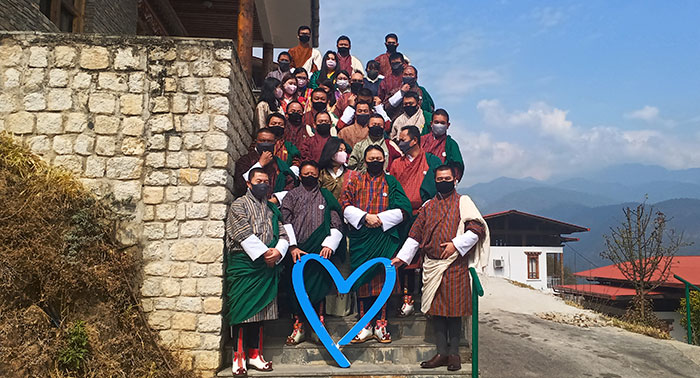
Twenty four judiciary officials are attending the training in Punakha
Phurpa Lhamo | Punakha
Collecting evidence has been a major issue for law enforcement agencies in dealing with trafficking in persons (TIPs) cases. The lack of a forensic lab has also hampered investigations.
United Nations Office on Drugs and Crime (UNODC) Bhutan’s National Project Coordinator, Tandin Wangmo, said that, as most cases of TIPs involved cases from outside Bhutan, there was a lack of capacity and resources to gather evidence.
“Even for a case that has happened in the country, it’s becoming very difficult for us to gather the right kind of evidence, which will, without doubt, prove that this is a TIP case,” she said.
She added that today United Nations Development Programme (UNDP) was looking to help build a forensic lab in Bhutan to solve the issue.
Tandin Wangmo added that, in the past, lack of awareness and uniformity in understanding of the definition of TIP was a challenge. A two-day training began yesterday for the 17 judges and seven judicial officers in Punakha.
“It’s important for all the law enforcement agencies in the country to have the same understanding of trafficking in person cases.”
Further, the amendment of section 154 of the Penal Code of Bhutan 2011 is also expected to curb misinterpretation of the TIPs definition among law enforcement agencies.
Tandin Wangmo said that due to a lack of common understanding of TIPs, there were cases, which could have been prosecuted as TIPs case.
At the training, a first of its kind manual to strengthen the country’s capacity to deal with TIPs cases was also launched. With assistance from the UNODC, the manual was developed by Bhutan National Legal Institute in partnership with the Department of law and Order.
Today, Bhutan has 11 officially registered TIPs cases. The first case of trans-national TIPs in Bhutan was detected in 2007. In 2011, the first internal TIPs case was detected.
Speaking at the training, High Court’s Justice Lobzang Rinzin Yargay said that, although no reports were available, Bhutan is a destination and source country in terms of TIPs.
He added that often the defendants in TIPs cases used consent as a defence.
The manual addresses this issue. The manual stated that consent is rendered irrelevant if the case involves fraudulent job offer, deceit regarding the conditions of work, and when the exploitation involves children.
Officiating Chief of Department of Law and Order, Karma Dorji said that even for adults the consent is negated because physical force, deception and fraudulent practices might have been used as means of trafficking for the purpose of exploitation.

